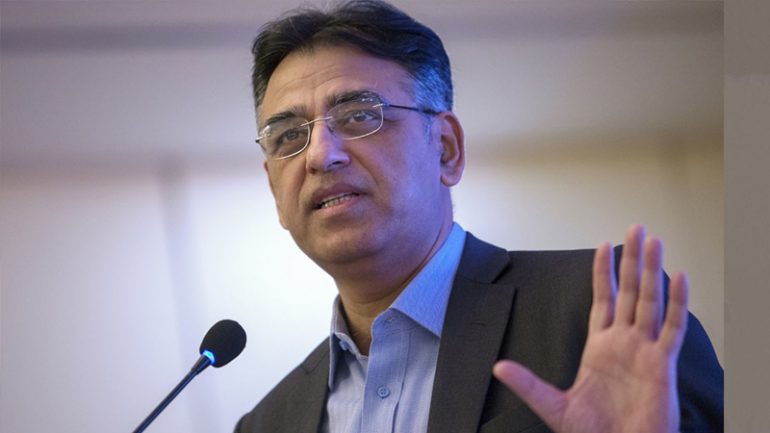Former Planning Minister Asad Umar on Saturday announced his departure from both the Pakistan Tehreek-e-Insaf’s (PTI) basic membership and politics altogether.
He has already resigned from the position of the PTI’s Secretary General in May amid the aftermath of the May 9 riots that erupted after the arrest of Imran Khan in a graft case.
In a statement posted on X, Umar said, “After over a decade in public life, I have made the decision to completely step away from politics. I am resigning from the basic membership of PTI.”
Asad Umar was once the close confidant of PTI Chairman Imran Khan and has served as finance and planning minister in the federal cabinet of the PTI’s government.
Umar’s decision comes in the wake of a broader trend of PTI members leaving the party, spurred by a nationwide crackdown and the arrest of numerous prominent leaders following the May 9 riots, which erupted following Imran Khan’s own arrest on that day.
Despite his earlier press conference on May 24 denouncing the May 9 events and relinquishing his party positions, Umar had not indicated any inclination to join other political entities, such as the Istehkam-i-Pakistan Party or the PTI Parliamentarians (PTI-P), both of which have welcomed several PTI defectors.
Referring to his previous press conference, Umar reiterated his disagreement with the policy of confrontation with state institutions. He emphasized that such a confrontational approach has resulted in a detrimental clash with state institutions, emphasizing that it is not in the best interest of the country.
Expressing gratitude to those who supported him throughout his public service, Umar specifically acknowledged the NA-54 team and the voters who elected him twice.
The former Finance Minister concluded, “I have made every effort to serve the constituency I was elected from. May Allah’s blessings shine upon the Pakistani nation.”

Daily Times


